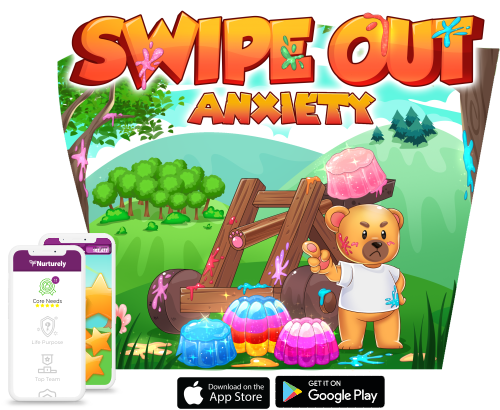Why Are We Scared of Public Speaking?


Public Speaking
Public Speaking – Being able to clearly communicate and present your ideas to a group successfully. Also described as the ability to promote and move people in a certain direction, provoke discussions and educate.
That sounds simple enough; well for me it’s a “yeah right” easier said than done. I’m anxious just thinking about it!
Often public speaking requires standing in front of an audience, communicating something you’ve spent hours preparing.
At least 30% of people experience varying degrees of ‘fear’.
Over the years I have avoided public speaking like it was the plague, and while writing this article I have had many ‘aha’ or light bulb moments.
Glossophobia?
Glossophobia – The fear of public speaking is a very common phobia and one may affect up to 75% of the population. Great so if I have it at least I know I’m not alone!
Some people feel a slight nervousness at the thought of public speaking, while others experience intense panic and fear. They try to avoid public speaking. However if faced with no other option they may demonstrate shaking hands, shaky voice, sweating, etc.
Public Speaking fear varies
While most of those who experience a ‘fear of public speaking’ are mild cases some experience a more debilitating form of Glossophobia, which can be devastating.
The more fear you have the greater the impact. It can stop you sharing your ideas, successfully present work solutions. It can affect your personal and professional growth too.
Why then are we afraid of public speaking?
Fear of public speaking is not really about the content of the speech. Rather how you feel when delivering the speech or the thought of giving the speech. There are a number of different reasons why people become afraid when facing public speaking engagements. Let’s explore of few theories:
Physiology – threat
Getting prepared
When faced with a threat or life threating situation our autonomic nervous system responds by preparing us physically. This often manifests itself in the form of anxiety or fear. Basically the mind is saying this is dangerous, don’t do it! The worse the perceived threat the bigger the physical or psychological reaction will be.
The fear of fear
We often think of an anxious or fearful person, as someone who’s worried about some object. Things like snakes or spiders, event such as a presentation or earthquake, or an issue like world hunger.
However more importantly those who deal with anxiety disorders are typically not worried with objects, events, or issues in the world. Rather, they are afraid of the physical body sensations of anxiety itself and suffer from what is termed as Anxiety Sensitivity – ‘the fear of fear’
So, on top of worrying about whether they will be able to deliver their speech, those with high anxiety sensitivity also worry that they will become highly anxious in front of their audience. They are concerned about being a shaky speaker, forgetting the content or being judged poorly.
At least I didn’t pass out
I clearly remember years ago, I was at a training event and everyone had to introduce themselves and their company. The 24 hours leading up to that speech was a nightmare and delivering it was even worse! Heart racing, trembling hands, shaky voice, ringing in ears, diminishing room…at least I didn’t pass out I guess.
Some studies have shown correlations between those that suffer with anxiety across multiply different situations are more likely to experience problems with public speaking. Those who are not yet able to conquer their fear and anxiety are more likely to avoid situations where speaking in a public setting is required.
Again I can totally relate…continuing with my story. After what was about 3 minutes but felt like an eternity, apart from the relief I felt I found myself looking for feedback or clues as to what the group thought and to my dismay a senior member chuckled and that was the end of that, it just reinforced the already negative beliefs I had and heightened the fear.
Thoughts – negative beliefs
Negative thoughts is another factor surrounding public speaking and about ourselves as speakers. This often occurs when we overestimate the stakes of communicating our ideas in front of others, believing the event as a potential threat to credibility, image, and chance to reach an audience.
“I am not good at public speaking”, I will forget something”, I am boring, they won’t be interested” these negative views or beliefs can lead to an increase in anxiety levels and reinforce the fear of speaking in public.
There are some theories that make the distinction between performances – Performance Orientation and Communication Orientation.
Performance Orientation
Performance Orientation where you view public speaking as something that requires great skill, and you see the audience as adjudicators, judging how good at presenting your speech you are.
Communication Orientation
Moreover, Communication Orientation means your focus is on stating your ideas, delivering information, or sharing a story. Those with this orientation, tend to approach their audience the same way they converse with people in their everyday conversations.
Look at it another way: If you view a conversation that you have with another person as a form of public speaking, you get enough evidence that you can express yourself clearly and communicate well. You would then take the same approach to public speaking events where the focus is simply on sharing ideas and information. However, when the focus shifts from being heard and understood to being judged the anxiety tends to be higher.
Public Speaking Situations
While there are people who by nature tend to be more anxious, or people who don’t think they are good at public speaking, there are certain situations that are likely to make most of us more anxious when presenting in a public forum.

Inexperience
Like most things, experience builds your confidence without confidence you are more likely to experience fear and this is true of public speaking.
For me I believe this is the case, as long as I can remember I’ve always avoided public speaking. However if I did it regularly I’m sure it would have made a huge difference.
Evaluations/Testing. Whether a real or imagined evaluation or testing component to the situation, the fear is heightened. If you are speaking in front of a group of people a panel where you are to be judged on what you present, you are likely to feel more anxiety.
Inadequate
Imagine you are to present to a group with higher status, this could be in the workplace (to upper management) or professional experts in your field), you may feel as though there is a treat and the anxiety builds.
Contributing ideas
If you are sharing new ideas with a group, you may worry more about how you will be judged. You may feel more uncomfortable delivering your position, and engaging with the audience.
Unknown Groups
You may have confidence speaking in public and presenting to familiar groups for example speaking in front of your team or professionals in your field of expertise. However when it comes when the target audience changes to one you are not familiar with, your confidence may be a little shaky.
Knowledge
Finally, another factor that contributes to the fear of public speaking is how skilled you are or the perceived knowledge you have in an area. While many people believe themselves to be good speakers, there is always room for improvement. Those that continue to work on their public speaking skills tend to stand out the most.
Increased competence leads to more confidence, which is an effective remedy to fear itself. However just because you are a confident speaker doesn’t necessarily translate to being a good public speaker
Reduce Stress & Anxiety

Join the BETA Program!
Swipe away your anxiety as you advance through the many islands of fun challenges. Unlock the islands mysteries, and ultimately improve your own happiness and wellbeing






